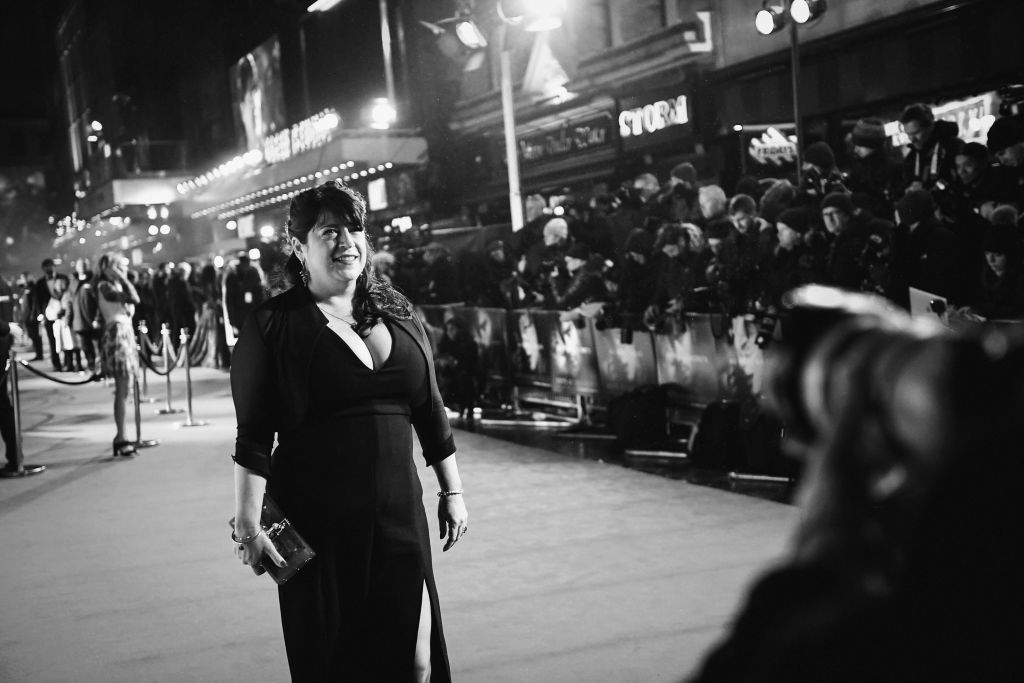As an erstwhile fellow peddler of dirty books (Ambition, 1989), I’m in two minds about E.L. James. On the one hand, I’m glad that I never made money writing tosh which led legions of gullible women to collude in their own humiliation. Granted, my heroine had SOLD tattooed on her forehead, but so far as I know no murdering man ever used my book as an alibi, whereas, as Wikipedia puts it:
Rough sex murder defense, also known as the Fifty Shades defense, is employed by some people accused of murdering a sexual partner who claim that the death occurred because of injuries sustained during consensual sex. Advocacy group We Can’t Consent To This has identified… sixty police suspects or defendants in the UK who have stated from the outset or later plead this defense, 45 percent of which resulted in a lesser charge, lighter sentence, acquittal, or the case not being pursued.
On the other hand, I’ve been extremely envious of James for making all that money when I practically spent my humble £100,000 ($125,000) advance on the way home. After six Grey books and a complete lulu of a film, James is now set for life from her decades acting as chief pornographer to the Boden set and can do as she pleases — which appears to have been nursing a secret desire to be a sexed-up Barbara Cartland all along.
The Missus is a follow-up to The Mister. They sound like novelizations of British soap opera episodes but concern the romance of the Cornish Count Maxim and the Albanian Alessia, his former cleaner — “She used to empty a bin of condoms every time she cleaned for him” — and recent “betrothed.” The opening paragraph has all the molten dynamism of a trip to a home improvement store: “My footsteps echo an urgent beat on the hard reflective floor, and I squint beneath the unremitting light of the fluorescents.” But no worries: the next paragraph brings the drama, as Maxim surveys the fractured, lifeless body of his brother:
Kit, my big brother.
My touchstone.
Kit, the twelfth Earl of Trevethick.
Dead.
Bad writers often do this; it’s their way of saying let that sink in, a social media phrase beloved of halfwits. Does anyone ever really think like this? In the morning, does E.L. go to her sumptuously appointed kitchen and reflect:
Espresso, my coffee.
My libation.
Espresso, a coffee-brewing method of Italian origin in which a small amount of nearly boiling water is forced under 9-10 bars of pressure through finely ground coffee beans.
Brewed.
The book begins in Albania, which I’m not sure will tap into James’s readers’ rampant desire for escapism. When I think of Albania, it’s not of the savage glory of its hinterlands but of deceitful men entering Britain illegally and pretending to be Syrian orphans in order to mooch off the state. That, and the statue of Norman Wisdom, neither of which shrieks “the good life” to me. But by page 3, sex raises its ugly head and we’re back on solid — or rather liquid — ground: “My body rouses; desire, hot and heavy, flowing south.”
You know the “show, don’t tell” rule of narrative? James thinks that’s a bourgeois convention. Hence: “She’s overcome so much in such a short time: trafficking, homelessness, finding paid employment… and falling in love with me.” And: “She’s been trafficked through Europe, been homeless, lived in one of the busiest cities in the world, and she’s fallen in love… then had that all snatched away from her as she was kidnapped, and nearly raped, by her betrothed.” And my personal favorite: “Tell me. What happened after I put you on that minibus on the road to Shkodër?”
When we’re not being brought up to speed on what happened in the previous book, we’re getting clunky bulletins on what a catch Alessia is: “You are the most beautiful, talented and maddening woman I have ever known. I love you!” Sometimes the banality verges on the surreal: “Alessia does a twirl. She’s wearing a skirt, top and cardigan from the collection that Maxim bought her in Padstow.” Talk about Fifty Shades of Beige.
This being James, there’s a fair bit of sex. I so wish people wouldn’t use the word “seed” unless they’re talking about gardening. But you can really feel James’s excitement mounting when there are the occasional high-end fixtures and fittings to be described: “Their bedroom is all whitewashed wood, with distressed furniture.” I’m not surprised it’s distressed, having to bear mute witness to all that flowing seed.
James is a singularly inelegant writer, the frequency of those ugliest of curses “arsehole” and “shit” reminding me of the level of social intercourse I grew accustomed to during my days as a “punk rocker” without callow youth as an excuse. I’m fascinated by what drives a bad writer — the wordsmith equivalent of a one-legged person trying to pursue a career as a tap-dancer. Can they not hear themselves? Do they read good writers? Can they see the difference, or are they simply word-blind? James started out writing fan fiction in middle-age, after becoming fascinated by the Twilight novels, which are aimed at teenagers, and she’s never progressed. She calls the Fifty Shades trilogy “my midlife crisis, writ large — all my fantasies in there.” Whether or not her fantasies now involve doing the deed in badly plumbed East European bathrooms while senseless on raki and wearing something smart-casual by Seasalt is anyone’s guess.
In more than forty years of reviewing books, I don’t think I’ve ever read one quite this bad. There’s so much to hate about the ghastly pair, but the hero’s way of addressing himself as “dude” and “mate” come near the top. So does the heroine’s habit of saying “muchly,” and poking her tongue out when she’s concentrating — meant to be cute, but soon conjuring up the image of a foolish dunce. Calling credit cards “magic cards” is also intended to be adorable but is one step away from having a character point to a plane and cry in fear and wonderment: “White man magic makes big flying metal bird!”
Some prose dances, sparkles, flies. This prose lumbers from situation to situation, location to location and emotion to emotion. There’s no light or shade, just solid, drab gray. Closing the book, I finally felt freed from my very own Red Room of Pain — and, I’m pleased to report, no longer the tiniest bit envious.
This article was originally published in The Spectator’s UK magazine. Subscribe to the World edition here.

























